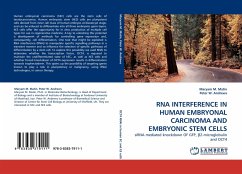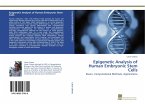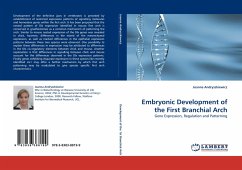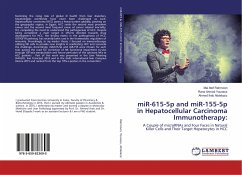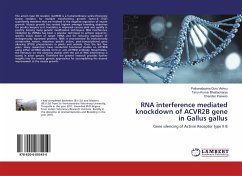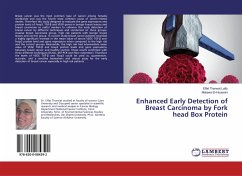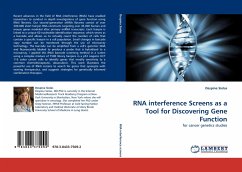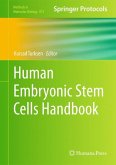Human embryonal carcinoma (hEC) cells are the stem cells of teratocarcinomas. Human embryonic stem (hES) cells are pluripotent cells derived from inner cell mass of human embryos at blastocyst stage, and can be induced to differentiate into all three embryonic germ layers. hES cells offer the opportunity for in vitro production of multiple cell types for use in regenerative medicine. A key to unlocking this potential is development of methods for controlling gene expression and, consequently, cell differentiation. One tool that might be exploited is RNA interference (RNAi) to manipulate specific signalling pathways in a transient manner and so influence the selection of specific pathways of differentiation by a stem cell. To explore this possibility we used RNAi to determine whether the transcription factor, OCT4, is required to maintain the undifferentiated state of hEC, as well as hES cells and whether forced knockdown of OCT4 expression results in differentiation towards trophectoderm. This opens up the possibility of targeting genes known to play a role in pluripotency or malignancy, using RNAi technologies, in cancer therapy.

